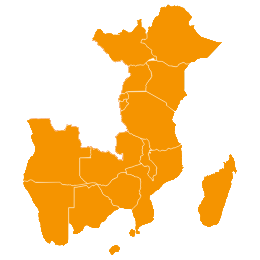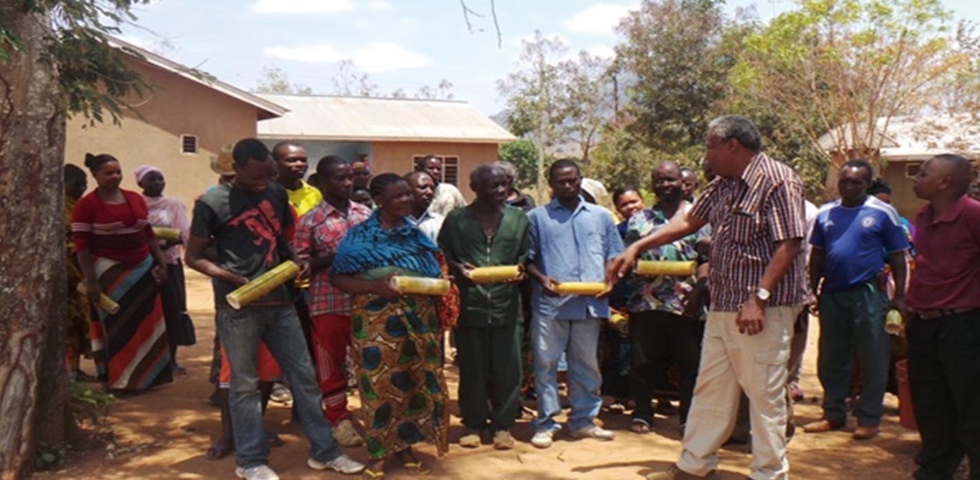Rodent Control
“The remarkable results that were achieved have been recognized by rodent control experts in various countries and by international organizations such as the African Union and the World Bank.”
BACKGROUND
A variety of biological and non-biological factors impact rodent populations in Africa. Tailored control strategies that factor in the types of species that live in a given agricultural ecosystem, the crops that are being grown there, and the cultivation methods that are being used as well as the difficulty of implementing them and their affordability and cost-effectiveness should, therefore, be implemented. Africa is in need of better pest control solutions in order to boost agricultural productivity and enhance food security.
WHAT’S INVOLVED
Experimentation on EP series of rodent pest control products: A series of experiments designed to systematically evaluate the effectiveness of sterilization-oriented pest control strategies and technologies were conducted in African countries during the early stages of the project in order to determine whether EP rodent sterility products created in China are effective in Africa and make comprehensive consideration of economic, political, social, and cultural dynamics to determine the impact of rodent sterility control programs on agricultural development and farmers’ livelihoods on the continent in order to improve food security.
Rodent Outbreak Management to Improve Livelihoods of African Farmers project: This project was successfully implemented from 2014-2016 with the support of the UK’s Agricultural Technology Transfer (AgriTT) program in order to demonstrate and validate the efficacy of the EP series of rodent sterility agents developed in China in Tanzania in collaboration with the University of Greenwich and the SUA Pest Management Centre (SPMC). Results indicated that EP agents are capable of sterilizing both male and female rodents in Africa and that they had good reproductive and population control effects.
Strengthening and Developing Cooperation:The project strengthened existing cooperation between Tanzania, China, and the UK and will lead to new forms of cooperation between organizations in these nations and researchers in Ethiopia, Madagascar, and several other countries in Africa that have begun conducting EP-1 studies.
Testing in Conjunction with EcoRodMan: Tanzania, Namibia, Swaziland, South Africa, Uganda, and Ethiopia have conducted EP-1 tests on some of the main rodents that inhabit the nations in conjunction with the Ecological Rodent Management (EcoRodMan) sustainable agriculture and food security project.
Experimentation in Tanzania and Indonesia: An experimental demonstration involving EP fertility control agents was also conducted from 2018 to 2020 in Tanzania and Indonesia. The remarkable results that were achieved have been recognized by rodent control experts in various countries and by international organizations such as the African Union and the World Bank.
World Bank Rodent Program Inclusion and Ongoing Trials: The agents are being experimentally validated and demonstrated in Tanzania, Uganda, Namibia, and five other countries and have recently been included in the WB’s African rodent control demonstration project. Further research will focus on field trials and sterility effects on additional harmful rodent species in order to support the registration of locally applicable EP-1 bait formulations.
EXPLORE THIS SOLUTION
Modern rodent control involving EP agents in Africa can offer:
- Details about how to use EP sterilization agents to control the rodent population in an efficient and cost-effective manner.
- Information about cooperative relationships related to the agents that are being strengthened and formed between various countries, universities, projects and programs, and international organizations.

Countries involved
China, Tanzania, Uganda, Namibia, Madagascar, Swaziland, South Africa, Ethiopia, Indonesia, the UK
Project partners
Chinese Academy of Sciences; the Agricultural Technology Transfer (AgriTT) program; the Sokoine University of Agriculture Pest Management Centre (SPMC); the Institute of Zoology, Chinese Academy of Sciences; Natural Resources Institute, University of Greenwich; the Ecological Rodent Management (EcoRodMan) project.
Project dates
2013 – present
Share this solution
Bookmark this solution
BookmarkShow Full Solution
Summary
In recent years, China has made important breakthroughs in the research and development of rodent infertility agents and has been using them to successfully control the animals’ populations. The Chinese Academy of Sciences launched experimentation projects in various countries in Africa for the purpose of verifying their efficacy to apply pest control advances, enhance agricultural undertakings, and boost incomes in these locations.
Challenge/Problem
A variety of biological and non-biological factors impact rodent populations in Africa. Tailored control strategies that factor in the types of species that live in each agricultural ecosystem, the crops that are being grown there, and the cultivation methods that are being used as well as the difficulty of implementing them and their affordability and cost-effectiveness should, therefore, be implemented. Extermination-oriented pest control strategies can result in the survival rate of rodents with short reproductive cycles improving, which can lead to problems such as rapid recovery of population density and low prevention and control efficiency, while a control strategy based on sterility can be more effective. Rodenticide remains the main method of controlling the rodent population and density in Africa, however; a variety of different acute and chronic pesticides are widely used on the continent every year. Africa is, therefore, in need of better pest control solutions to boost its agricultural productivity and enhance its food security.
Solution
China has made important breakthroughs in the research and development of rodent infertility agents in recent years and has been using them to successfully control the animals’ populations. Annual reproduction is effectively limited in an easy, efficient, long-term, environmentally friendly, humane, economical, and practicable manner after only one deployment of male and female rodent sterility agents that are part of what is known as the EP series. Experts in China and other countries have recognized and verified that the agents successfully inhibit the reproduction of male and female rats when bait formulations that contain them are consumed in the field.
The project was designed to determine whether the EP rodent sterility products created in China are effective in Africa and to make comprehensive consideration of economic, political, social, and cultural dynamics to determine the impact of rodent sterility control programs on agricultural development and farmers’ livelihoods on the continent. Laboratory sterility tests were conducted in Tanzania, Madagascar, and Ethiopia in order to evaluate the antifertility effect of EP-1 bait on African rodents.
The overall goal of the project is to evaluate the effectiveness and practicability of the EP line of male and female sterility agents and related rodent control programs by conducting laboratory and field experiments in order to improve food security. Experiments have been conducted in Africa, and initial findings have been released. Further cooperation through existing partnerships in Tanzania and other African countries will make it possible to help reduce poverty on the continent. Bait containing sterilization agents is distributed through existing private distributors in order to ensure steady supply, and dealers use their own methods to market it and achieve sales growth.
Results
- The Rodent Outbreak Management to Improve Livelihoods of African Farmers project was successfully implemented from 2014-2016 with the support of the UK’s Agricultural Technology Transfer (AgriTT) program. The Institute of Zoology, Chinese Academy of Sciences conducted a verification project to demonstrate and validate the efficacy of the EP series of rodent sterility agents developed in China in Tanzania in collaboration with the University of Greenwich and the Sokoine University of Agriculture Pest Management Centre (SPMC). Results indicated that EP agents are capable of sterilizing both male and female rodents in Africa and that they had good reproductive and population control effects
- The project strengthened existing cooperation between Tanzania (Sokoine University of Agriculture), China (Institute of Zoology, Chinese Academy of Sciences), and the UK (Natural Resources Institute, University of Greenwich) and will lead to new forms of cooperation between these organizations and researchers from Ethiopia, Madagascar, and several other countries in Africa that have begun conducting EP-1 studies
- Tanzania, Namibia, Swaziland, South Africa, Uganda, and Ethiopia have conducted EP-1 tests on some of the main rodents that inhabit the nations in conjunction with the Ecological Rodent Management (EcoRodMan) sustainable agriculture and food security project funded by the European Development Fund and implemented by the African Union and are benefiting from their participation
- An experimental demonstration involving EP fertility control agents was also conducted from 2018 to 2020 in Tanzania and Indonesia. The remarkable results that were achieved have been recognized by rodent control experts in various countries and by international organizations such as the African Union and the World Bank
- The agents have recently been included in the World Bank’s African rodent control demonstration project
- Results are being experimentally validated and demonstrated in Tanzania, Uganda, Namibia, and five other countries. Further research will focus on field trials and sterility effects on additional harmful rodent species in order to support the registration of locally applicable EP-1 bait formulations
Lessons Learned/Potential for Replication
- Sharing and promoting sterilization-oriented pest control technology and techniques with all stakeholders and encouraging local farmers to utilize them makes it possible to maximize pest control impact and sustainability. The Chinese Academy of Sciences took these actions.
- Knowledge sharing plays an important role in experimentation. Working with apposite academic organizations, such as Tanzania’s Sokoine University of Agriculture and the United Kingdom’s Natural Resources Institute, University of Greenwich, made it possible to shorten the amount of time that it took to conduct research.
- Training is an inseparable part of this type of pest control campaign. The Chinese Academy of Sciences conducted many field visits, organized hands-on training, and edited manuals for residents of the areas where trials were conducted and worked with agriculture officials, members of the rural workforce, and other stakeholders to promote the sterilization system
Next Steps
The Chinese Academy of Sciences will assess the impact and results of experiments that are underway and the ability of EP-1 to reduce crop loss, increase agricultural yields, decrease the rodent population, and lower the risk of plague in the countries that it has been tested in, and trials will be conducted on more species of rodents in order to verify the efficacy of various bait formulations.
Last update: 28/06/2021


